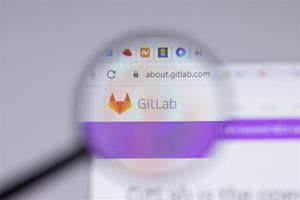National Comprehensive Cancer Network® (NCCN®) Guidelines Recommend Monoclonal Antibodies for COVID-19 Prevention in People with Cancer; New Data Published in JAMA Oncology Underscore Severe Impact of COVID-19 on This Population
- NCCN Clinical Practice Guidelines in Oncology for the Prevention and Treatment of Cancer-Related Infections now recommend monoclonal antibodies for pre-exposure prophylaxis against COVID-19 in appropriate cancer populations
- Reflects growing alignment among NCCN, IDSA, and CDC on the role of monoclonal antibodies in protecting immunocompromised individuals from COVID-19
- New data published online in JAMA Oncology from the National Cancer Institute COVID-19 in Cancer Patients Study showed COVID-19 had a significant impact on cancer patients, including serious delays or even cessation of cancer treatment and prolonged complications
WALTHAM, Mass., July 21, 2025 (GLOBE NEWSWIRE) -- Invivyd, Inc. (Nasdaq: IVVD), today announced the June 20, 2025 updated National Comprehensive Cancer Network® (NCCN®) Clinical Practice Guidelines in Oncology (NCCN Guidelines®) for the Prevention and Treatment of Cancer-Related Infections now recommend the use of available monoclonal antibodies for pre-exposure prophylaxis of COVID-19. The NCCN Guidelines advise clinicians to refer to guidance from Infectious Diseases Society of America (IDSA), Centers for Disease Control and Prevention (CDC), or U.S. Food and Drug Administration for available monoclonal antibody options. This recommendation reflects the growing alignment among key organizations - including IDSA and CDC - reinforcing the critical role of monoclonal antibodies in protecting immunocompromised individuals from COVID-19.
New research titled Risk Factors for COVID-19–Related Hospitalization and Death in Patients With Cancer published online on July 17, 2025 in JAMA Oncology reflects why prevention of SARS-CoV-2 is important for people with cancer. The National Cancer Institute COVID-19 in Cancer Patients Study (NCCAPS) provides critical insights into the long-term impact of SARS-CoV-2 infection in these individuals.
Over a two-year period, the NCCAPS study followed 1,572 eligible adult patients with cancer who also had COVID-19. The data revealed high risk of severe disease as evidenced by the rate of hospitalization, treatment delays, and mortality within 90 days among patients undergoing chemotherapy or those with hematologic malignancies, consistent with previous studies. Notably, of the 290 patients that were initially hospitalized for COVID-19, 31 patients had a second admission for sequelae of COVID-19 within 30 days of their initial admission. Over 50% of all cancer treatment disruptions in the cohort were directly attributed to COVID-19, especially during the early phase of infection. These disruptions raised concerns about continuity of care and long-term impacts on patient outcomes. These data highlight the importance of continued surveillance and prevention strategies in populations at highest risk for COVID-19 complications.
“The inclusion of monoclonal antibodies in the NCCN Guidelines for the Prevention and Treatment of Cancer-Related Infections reflects a growing recognition across the medical community: it’s time to move beyond a one-size fits all approach to COVID-19 prevention, especially for immunocompromised patients,” said Mark Wingertzahn, Ph.D., Senior Vice President of Clinical Development at Invivyd. “Monoclonal antibodies represent one of the most transformative breakthroughs in modern medicine, delivering fast, targeted protection by harnessing the immune system’s natural defenses, helping to reduce risk of severe illness and avoid disruptions to cancer treatment. Ultimately, this is about giving healthcare professionals the tools they need to provide high quality comprehensive cancer care.”
The updated NCCN Guidelines are now available on the NCCN website and serve as an important resource for oncology providers making evidence-based treatment decisions. NCCN is a not-for-profit alliance of 33 leading cancer centers devoted to patient care, research, and education and is dedicated to defining and advancing quality, effective, equitable, and accessible cancer care and prevention so all people can live better lives.
About Invivyd
Invivyd, Inc. (Nasdaq: IVVD) is a biopharmaceutical company devoted to delivering protection from serious viral infectious diseases, beginning with SARS-CoV-2. Invivyd deploys a proprietary integrated technology platform unique in the industry designed to assess, monitor, develop, and adapt to create best in class antibodies. In March 2024, Invivyd received emergency use authorization (EUA) from the U.S. FDA for a monoclonal antibody (mAb) in its pipeline of innovative antibody candidates. Visit https://invivyd.com/ to learn more.
Trademarks are the property of their respective owners.
Cautionary Note Regarding Forward-Looking Statements
This press release contains forward-looking statements within the meaning of the Private Securities Litigation Reform Act of 1995. Words such as “anticipates,” “believes,” “could,” “expects,” “estimates,” “intends,” “potential,” “predicts,” “projects,” and “future” or similar expressions (as well as other words or expressions referencing future events, conditions or circumstances) are intended to identify forward-looking statements. Forward-looking statements include statements concerning, among other things, the potential of monoclonal antibodies for pre-exposure prophylaxis against COVID-19 in appropriate cancer populations; the future of the COVID-19 landscape and the threat of COVID-19 for cancer patients; the potential long-term impact of SARS-CoV-2 infection in cancer patients; the company’s devotion to delivering protection from serious viral infectious diseases, beginning with SARS-CoV-2; and other statements that are not historical fact. The company may not actually achieve the plans, intentions or expectations disclosed in the company’s forward-looking statements and you should not place undue reliance on the company’s forward-looking statements. These forward-looking statements involve risks and uncertainties that could cause the company’s actual results to differ materially from the results described in or implied by the forward-looking statements, including, without limitation: the availability of monoclonal antibodies for pre-exposure prophylaxis against COVID-19; how long the EUA granted by the U.S. FDA for a monoclonal antibody in the company’s pipeline will remain in effect and whether the EUA is revised or revoked by the U.S. FDA; the ability to maintain a continued acceptable safety, tolerability and efficacy profile of any product candidate following regulatory authorization or approval; changes in expected or existing competition; changes in the regulatory environment; the outcome of the company’s engagement with regulators; uncertainties related to the regulatory authorization or approval process, and available development and regulatory pathways; the timing, progress and results of the company’s discovery, preclinical and clinical development activities; unexpected safety or efficacy data observed during preclinical studies or clinical trials; the risk that results of nonclinical studies or clinical trials may not be predictive of future results, and interim data are subject to further analysis; whether the company’s product candidates are able to demonstrate and sustain neutralizing activity against major SARS-CoV-2 variants, particularly in the face of viral evolution; the company’s reliance on third parties; the complexities of manufacturing monoclonal antibody therapies; macroeconomic and political uncertainties; the company’s ability to continue as a going concern; and whether the company has adequate funding to meet future operating expenses and capital expenditure requirements. Other factors that may cause the company’s actual results to differ materially from those expressed or implied in the forward-looking statements in this press release are described under the heading “Risk Factors” in the company’s Annual Report on Form 10-K for the year ended December 31, 2024 and the company’s Quarterly Report on Form 10-Q for the quarter ended March 31, 2025, each filed with the Securities and Exchange Commission (SEC), and in the company’s other filings with the SEC, and in its future reports to be filed with the SEC and available at www.sec.gov. Forward-looking statements contained in this press release are made as of this date, and Invivyd undertakes no duty to update such information whether as a result of new information, future events or otherwise, except as required under applicable law.
This press release contains hyperlinks to information that is not deemed to be incorporated by reference in this press release.
Contacts:
Media Relations
(781) 208-1747
media@invivyd.com
Investor Relations
(781) 208-1747
investors@invivyd.com

More News
View More




Recent Quotes
View More
Quotes delayed at least 20 minutes.
By accessing this page, you agree to the Privacy Policy and Terms Of Service.